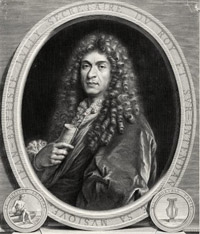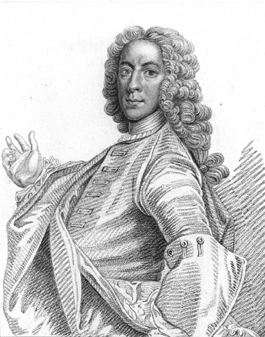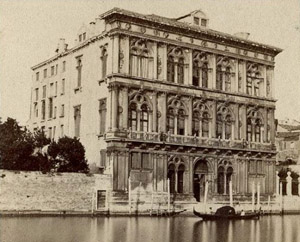
Requiescat in pace
I haven't the faintest idea how my subconscious sends Examiner subjects floating up into view. One minute I'm appreciating a fragrant box of organic peaches at the farmer's market; a split second later I'm well into the lead paragraph for an article about the mating habits of retired orchestral contrabassoonists. All in all, I'd rather not know how the whole thing works; better to start (and subsequently abandon) an ill-gotten article about musicianly sex lives than to understand, and possibly rig, the whole inspiration process.
So it happens that today's article concerns composer demises. Certainly I wasn't in a creepy mood or thinking morbid thoughts, but the notion just came to me, from one breath to the next. Having presented itself the subject has become ghoulishly delectable.
I should start out by establishing a simple fact of music history: romanticized flicks and wishful thinking aside, most composers kick the bucket just like any Tom, Dick, or Harry. In fact, a lack of drama prevails; composers aren't generally ones for toppling off mountains or being tommy-gunned into hamburger while fighting back-country rebel insurgents. We'd all like to believe the lovely story of an expiring Ludwig van Beethoven shaking a defiant fist at the heavens in the midst of a titanic thunderstorm, but cold reality and the Vienna weather report tell us otherwise. LvanB, alas, was a Tom, Dick, or Harry -- at least in the expiration department.
Creative figures in general lead sedentary lives, a necessity given the nature of the occupation; I'm hard pressed to come up with a composer who might make a fit hero for, say, a Joseph Conrad novel. Musicians tend to be Jane Austen types on the whole.
But every silver lining has its cloud, and here and there in the stretch of music history certain odd, interesting, or grimly amusing tales can be found. Here are some of my favorites, so to speak.
Jean-Baptiste Lully
Death by temper tantrum
The Italian Giovanni Battista Lulli frenchified his name in order to lubricate his steep career ascent in the court of Louis XIV, having begun as a lowly garçon de chambre to a member of the king's family. He wound up with a near-monopoly on all matters musical in Le Roi Soleil's orbit, and in the exercise of that power allowed himself any amount of diva-ish hysterics, abuses, and gender-agnostic sexual indiscretions. He stands high amongst music history's most insufferable drama queens, usually protected from the appropriate consequences of his actions by a (mostly) indulgent monarch -- although even the kingly patience had its limits.
Lully was prone to whack his walking stick against the floor during rehearsals, both to beat time and also to exert his authority via typically obnoxious behavior. (Heaven knows the bone-rattling thuds would get, and keep, everybody's attention.) In early 1687 his toe got in the way of a whack, and the subsequent gangrene spreading up his leg brought about what must have been a humiliating and malodorous end, an agonizing three months later.
Lully was no saint, and undoubtedly deserved at least some comeuppance for his disgraceful insolence. But gangrene? Yeccchhhhh.

Lully: not a pretty way to go
Johann Sebastian Bach and George Frederick Handel
Death by ophthamology
Both Bach and Handel lived to reasonably ripe old ages for their day -- Handel especially. They were just as mortal as the rest of us, so naturally something was going to terminate each man's life, sooner or later.
But both composers were nudged along in the process by -- get this -- the same doctor. The fellow's name was "Chevalier" John Taylor -- an oculist who specialized in cataract surgery. Well, to be precise, his specialty appears to have been causing blindness, with a secondary concentration in killing people. In short, the good doctor was a quack.
Taylor trundled along Europe's roads in a carriage festooned with paintings of eyes; like a patent-medicene huckster, he would set up shop in a new town, following a bit of advance publicity, and then boast that he could cure blindness. What he actually did was to make a small cut in the conjunctiva -- the membrane that covers the white of the eye and lines the inner eyelid. Post-surgery, he would instruct his patient/victim to leave the eye well covered for a week, and then remove the dressing. By that time -- when almost certainly massive infection would be spreading -- Dr. Eyeball was long gone.
JS Bach began suffering from blindness later in his life, and submitted to (hang on) two operations by Taylor. Many historians believe that Bach's death was largely due to complications setting in from Taylor's incompetence (although opinion isn't unanimous.) Heaven knows that having one's eyeball slit by an unsterilized knife is unlikely to prolong life.
Taylor went on to operate on Handel in August 1758; the great German-English composer was in his grave in mid-April 1759.
Having a hand in the death of two giants of Western music has led to an obscure and reprehensible fraud acquiring a fragment of immortality via association. No such thing as bad publicity? Considering Dr. Taylor, I'm inclined to think otherwise.

John Taylor: the shame, oh the shame
Johann Schobert and Anton Filz
Death by reckless gourmandizing
We owe the Baron Melchior Grimm for the details of the gruesome story of the death of promising Parisian composer Johann Schobert, a contemporary of Mozart's. (Susan Sontag also passes on the tale in her novel In America.)
It seems that Schobert was quite the gourmand, partial to collecting wild mushrooms. (Shades of Ernst Bloch and John Cage.) In the St. Germain woods Schobert & family -- together with a doctor -- gathered a goodly supply. They then began asking various cooks to prepare the mushrooms for them, all of whom refused, insisting that the mushrooms were poisonous.
Not to be deterred, the family + doctor repaired to Schobert's Paris apartment where they cooked up the mushrooms for a fine little feast. They should have listened to the professional chefs: all who ate the mushrooms died, some after several weeks of intense pain.
The symphonist Anton Filz had his own little food craving; he loved spiders (?!), insisting that they tasted just like strawberries. (It tastes just like chicken, as they say.) Alas, sooner or later one of his grocery-spiders was poisonous; we all know what happened next.

.jpg)
Bon appétit
Wolfgang Amadeus Mozart
Death by scholarly dispute
Mozart lived during a period when the spread of infectious disease easily outstripped public sanitation; cities were shamefully unhealthy. If you haven't read Bleak House lately, may I recommend another go at it -- especially the chapters that detail street urchin Jo's smallpox and its vicious spread.
Wolfgang, being a city boy his entire life, was right in the firing line for just about every microbe around. Because of that, the actual cause of his early death at the age of 35 has never been known for certain. Whatever it was, it set in for good during the fall of 1791, became severe in November, and carried him away on December 5.
Naturally theories abound. H.C. Robbins Landon gives what might be the overall best coverage in 1791: Mozart's Last Year, in the chapter "Myths and Theories", which quotes extensive studies by Peter J. Davies. It's worth reading both for the background on Mozart's many childhood and adult diseases (none of which were unusual for the time), and then for a blow-by-blow (if speculative) attempt to match medical conditions to the known symptoms of Mozart's final illness. For now, the best guess is that he died from rheumatic fever, complicated by medical treatments barely changed from the Neolithic age.
Richard Wagner
Death by nutritionist folly
I share very little in common with Richard Wagner. Well, we're both musicians who write prose on the side. However, that's about it; I am neither anti-Semitic, megalomaniacal, nor short. (Or should I say "height impaired?") He was also a hell of a better musician than I am.
But actually Dick and I do share one more thing: coronary artery disease. Fortunately for me, once the symptoms -- angina, shortness of breath, fatigue, pain in the left arm, etc. -- started to make themselves felt, those lovely people at Kaiser Permanente reacted promptly with an angioplasty and stent placement, followed by a steady regimen of statin drugs, blood-pressure pills, and a light blood thinner to help guard against an encore.
With consistency and dietary attention to blood cholesterol levels, I'm unlikely to keel over from an occlusion any time soon.
But 120 years before my little fling with an early demise, Wagner's doctors figured that the same symptoms would be best treated by -- are you ready? -- a lot more beef in his diet. It makes sense in a weird sort of way, just as a lot of nutritionist nonsense does. You're weak and listless, and beef is a solid protein and energy source; ruddy-cheeked Beefeaters and all that.
So Dick started chowing down massive blobs of cholesterol like no tomorrow. And no tomorrow followed quickly. It comes as no surprise, I'm sure, to hear that the cause of death was a whopping heart attack. You don't fix clogged pipes by pouring more bacon grease down the sink, after all.
However, Richard Wagner was not one to check out by, say, dropping dead while shopping for a nice cut of chateaubriand at the corner grocery. Oh, no. The location was a stunning 16th century Venetian palazzo, where the funeral procession could include an appropriately majestic black-shrouded gondola ride down the Grand Canal.

The Palazzo Vendramin: if you must have a fatal heart attack, have it here
